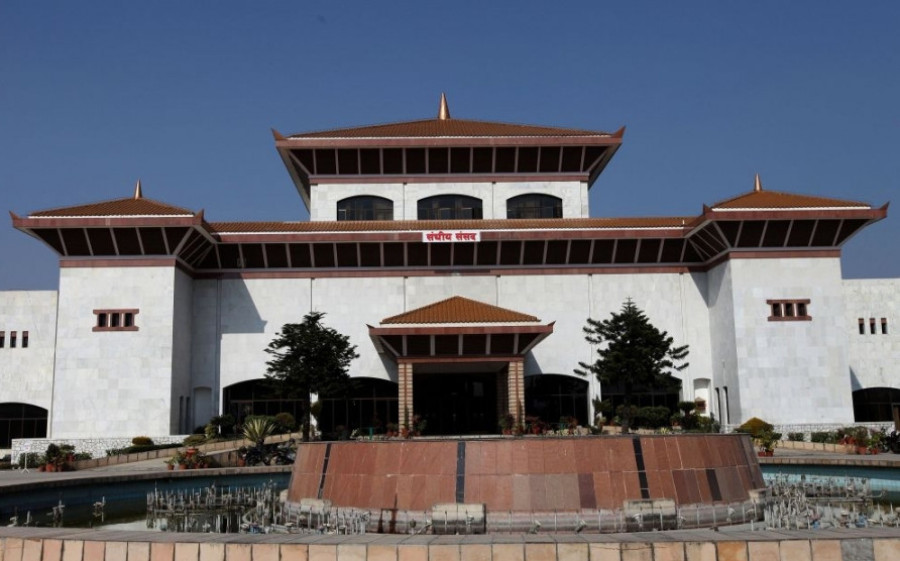National
New forest bill addresses community forest user groups’ concerns: House panel
Sub-divisional forest offices to be established in all the local levels.
Chandan Kumar Mandal
The Parliamentary Committee on Agriculture, Cooperative and Natural Resources has said that most of the concerns raised by community forest user groups and their promoters have been addressed in the new Forest Bill, which had drawn criticism for trying to curtail the rights of the community managed forests.
The parliamentary committee chairperson Purna Kumari Subedi told the Post that the bill was passed by the committee after addressing the issues that were earlier criticised by community forestry user groups.
“We have had several rounds of discussions before passing the bill. The overall bill—after the changes—looks encouraging to community forest users,” said Subedi. “The full report on the Forest Bill will be presented in Parliament soon for further discussion.”
With the amendments in the draft bill, the committee has proposed that all the local levels will have a forest unit as sub-divisional forest office, which was one of the major demands of the community forest users.
“The committee has suggested that one sub-division forest office should be opened in all the local levels as per the notion of federalism. People should get services at their local levels,” added Subedi.
The Federation of Community Forestry Users Nepal (FECOFUN) had earlier shown their dissatisfaction regarding the removal of ‘community forest’ from the preamble of the existing Forest Act, 1993. With the amendments, the term has also now been included in the draft bill by the committee.
FECOFUN had also criticised the government for tampering with the provision giving autonomy to local forest users for selling and distributing forest products inside the groups by independently fixing their prices.
“One of the objectives of the community forest is to provide timber and other forest products to its members and other locals, who are below the poverty line, if possible at free of cost or at least affordable rate,” Dil Raj Khanal, natural resources management lawyer said. “What we have realised is that our leaders have failed to understand why such freedom is required. Without such independence, a poor family can never have access to timber or other products.”
Following the criticism, the provision of allowing community forest groups to independently fix the price of forest products have been retained in the new bill as well, according to committee chairperson Subedi.
Since the new bill, which will replace the existing Forest Bill 1993, was registered in Parliament, it had drawn criticism from environmentalists, civil society members and community forest promoters. They had called it faulty, ambiguous, and encroaching on the rights of community forestry, which has been globally renowned for its conservation roles.
The bill was also seen as a reflection of the tendency to consolidate power to the centre. The provision of Divisional Forest Office—the proposed forest office under the provincial government—as per the new bill was seen as wielding ‘discretionary power’.
“Various strategies of government talk about expanding coverage of community forests by handing over more forests to local communities, but then the government has also tried to curtail their rights,” said Khanal. “How can this happen simultaneously? The role of Divisional Forest Office and officer should have been limited around monitoring aspects.”
The bill also has a provision that said the divisional forest office could take back forest from local communities if they failed to work as per their work plan or cause environmental damage.
“The provision of taking back forest land, which is like the cancellation of licence, should be there. But there are chances of misuse of the provision; instead, a new community group can be handed over the forest,” said Khanal, adding that giving forests back to the community can help protect them from further deforestation, degradation, and encroachment, which the government alone cannot do.
Currently, a total of 22,266 community forest user groups, which bring together 297,871 families associated with FECOFUN, have been conserving 2,236,270 hectares of forest in almost all of the districts in the country. Thirty seven per cent of the country’s total forest cover is being conserved by local communities.
FECOFUN chairperson Bharati Kumari Pathak said that they have also heard that some changes have been made in the bill to address the concerns of community forest user groups.
“But we cannot say anything in detail unless we see the full report once it is made public,” said Pathak. “We need to see what changes have been made and what are the other issues remaining to be addressed.”




 9.12°C Kathmandu
9.12°C Kathmandu















